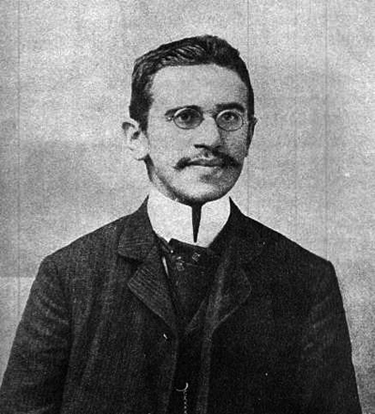
|
Artist Unknown
Otto Weiniger
Photo, ca. 1902 |
|
|
Otto Weininger (1800-1903) exemplified the conflicted attitudes some Viennese Jews held regarding their own Jewishness at the end of the 19th century. A convert to Protestantism, Weininger shot himself in 1903 because he considered himself a failure at becoming a real Christian. His major work, Sex and Character, was met with great approval by his contemporaries, even though his theories have been criticized as misogynist and anti-Semitic by today’s standards.
His central thesis is that men and women are composed of a mixture of male and female characteristics. While the male aspect is active, productive, conscious and moral/logical, the female aspect is passive, unproductive, unconscious, amoral and irrational. Weininger argued that women’s rights should be reserved for the "masculine woman" and women ought to live their lives in the pursuit of their sexual function as a prostitute or mother. By contrast, the duty of the male, or the masculine aspect of personality, is to strive for genius and to forego sexuality for an abstract love of God, which he finds within himself.
|
In a separate chapter, Weininger, defined he archetypical Jew as feminine, and thus profoundly irreligious, without true individuality (soul), and without a sense of good and evil. Ludwig Wittgenstein considered the book as one of his main influences on his work, but was in a fundamental disagreement with his position.
|